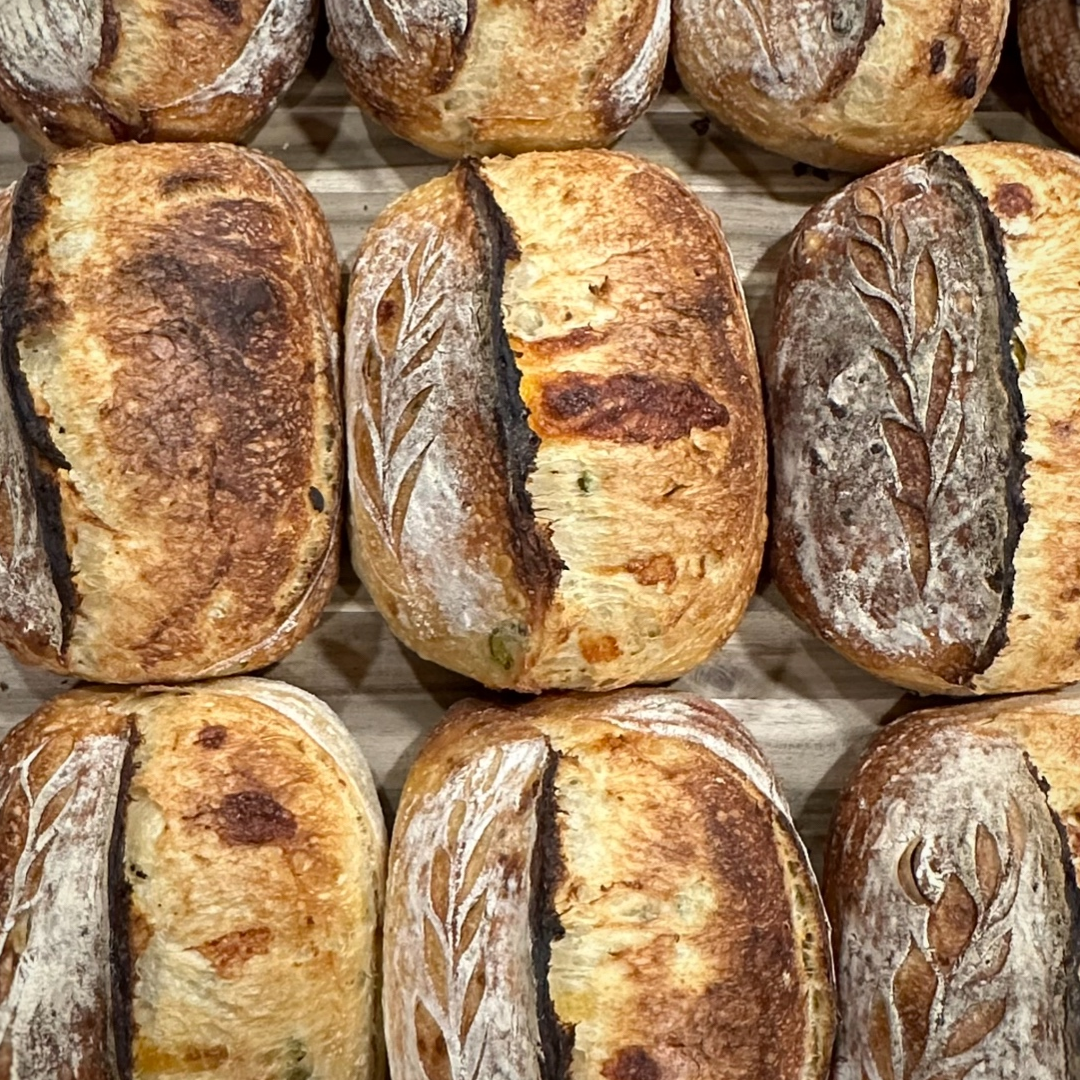
So you’ve been baking for a while, and friends keep telling you that you must start charging for your loaves, but you’re not sure that you’re ready. A lot of bakers reach this point: where your passion brings the possibility of income, and at some point, maybe even a business. But how do you know if you’re actually ready to take that next step?
This guide will walk you through a few key signs that you’re prepared to move from hobby baker to small bread business. It’s not about being perfect… It’s about understanding your process, being consistent, and knowing how to handle the shift from hobby to professional baking.

There are a lot of moving parts in sourdough, but some basics become clearer once you’ve spent more time with dough. Fermentation is a big one. Being able to recognize how dough behaves at different stages helps you make decisions, like when it’s ready to shape or when it might need a little more time.
You’ll also want to have a general handle on:
You don’t need it to be exact, but having a general idea of your process, timing and how that fits into your schedule helps keep things on track. There are many other factors to consider, but if any of these feel unpredictable or out of your hands, spend some time refining your process.

Consistency is about being able to bake the same loaf more than once. This doesn’t mean your bread needs to be perfect every time, but it should feel familiar.
When you bake, you should know:
If your results are still unpredictable, that’s okay. It’s all part of the learning process. But if you’ve started to notice patterns in your bakes and you can get a similar outcome each time, that’s a solid step forward. Selling bread doesn’t just mean hoping for a good bake. It’s about knowing your dough well enough to control the process so you can deliver consistent, reliable loaves to others!

Scaling up changes everything. It’s not just about mixing more dough—it’s about how every part of the process can essentially change. To figure out where you might need to adjust, ask yourself:
What feels manageable with two or three loaves can quickly get overwhelming when you scale up. Pay attention to where your process starts to slow down or fall apart. You don’t need a perfect system yet, but it helps to know where your pain points are. These are the kinds of things that catch people off guard when they start to sell.
Once you start baking for others, your role shifts. It’s no longer just about making good bread; it’s also about managing the logistics that come with running a small business. You will need:
The clearer you are up front, the smoother things tend to go. Feedback is part of it too. Some people will rave. Others might have opinions you didn’t ask for. Learning how to filter what’s helpful and let the rest roll off is part of the learning curve. You don’t need to get it all right on day one, but it helps to have a sense of what’s coming so you can start building systems that support your process. Not every customer will be your customer, and that’s okay. You don’t have to cater to everyone. Set clear boundaries, protect your time, and create a workflow that actually works for you.
If you’re in the market for a tool to manage the business side of your bakery, look no further than the Simply Bread App! Take a variety of payment options, create a library of products, manage orders in real time, and set up pickup locations for your baked goods. Sign up today to make running your bakery easier.
Wherever you live, there will be rules around selling food made at home. These vary by state or region, but most include details about:
Some areas make this simple with clear cottage food guidelines. Others may require:
Failing to comply with these regulations can lead to fines, delays, or shutdowns and they’re often harder to deal with after the fact. It’s worth doing the research ahead of time so you know exactly what’s expected. It doesn’t have to be overwhelming, but it does need to be done. Being informed protects your business and gives you more confidence moving forward.
As you prepare to sell your bread, remember that perfection isn’t the goal. It’s about being ready. You don’t need everything figured out from the start, but you do need to understand the basics and be able to adjust when things come up. We won’t know exactly how to handle everything until we try, and we won’t know where our weak spots are until we encounter them. Along the way, we’ll figure things out, and new challenges will always arise. Start small, offer staples, test things out, and learn as you go. Focus on getting it right over time, and don’t be afraid to ask questions along the way.
